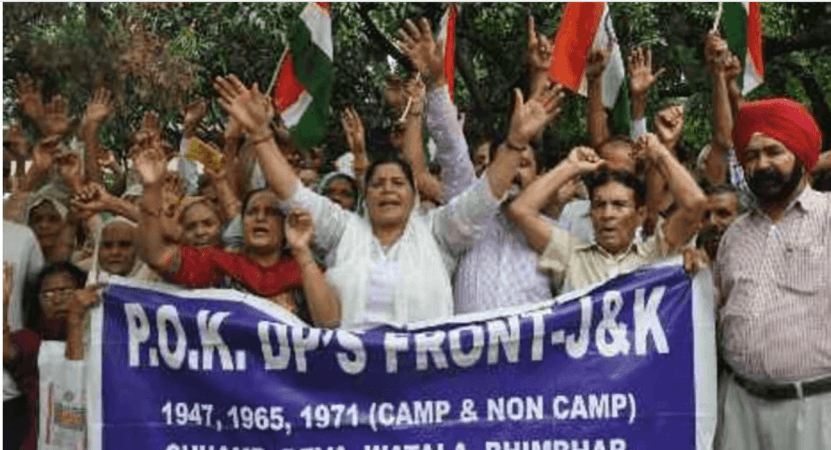
While the Cabinet Sub-Committee constituted by the Omar Abdullah government on prevailing reservation rules in Jammu and Kashmir has yet to submit its report, the quota debate took a new turn as refugees from Pakistan-occupied Jammu and Kashmir (PoJK) demanded inclusion in the list of Scheduled Tribes.
The PoJK refugees, living in different parts of the Jammu region, argued that they are part of the ethnic Pahari tribe, so they should also be included under the ST category.
This demand has reignited conversations about fairness, equity, and the challenges faced by the displaced community over the past seven decades.
As all PoJK refugees are Pahari-speaking, they demanded that the community should be treated on par with the ethnic Pahari tribe.
Presently, only those settled in the Rajouri and Poonch districts enjoy ST benefits, leaving thousands of displaced families in Jammu and other regions excluded.
In their appeal to the Prime Minister, Union Home Minister, Lieutenant Governor of Jammu and Kashmir, and the Chief Minister of the region, PoJK refugees have urged the government to extend full ST benefits to all members of their community. They have criticized the selective granting of ST status, which is currently limited to displaced persons from the Rajouri-Poonch region, as discriminatory and unjust. According to the community, such partial recognition undermines the shared struggles and socio-economic challenges faced by PoJK refugees.
Ashok Kumar Khajuria, a prominent leader of the POJK Displaced Persons (DPs) criticised the authorities for meting out "step-motherly treatment" towards Pahari-speaking PoJK refugees residing outside Rajouri-Poonch.
Raising serious concerns over the discriminatory policy, Khajuria asked, "If all PoJK refugees are Pahari-speaking, then why should their rights be determined by where they reside? If the government grants ST status to Pahari-speaking people in Rajouri-Poonch, why are those settled in Jammu and other regions deprived of the same benefits? A community should not be divided based on electoral calculations or political convenience."
Khajuria and other attendees criticized the existing policy, arguing that it unfairly excludes thousands of PoJK refugees who share the same ethnic identity, language, and cultural background as those in Rajouri-Poonch. He highlighted the paradox of the policy, questioning why a family's decision to seek better livelihood opportunities outside Rajouri-Poonch should result in losing their rightful claims to benefits.
"One brother living in Rajouri-Poonch gets ST status, while another, who migrated to Jammu or elsewhere in search of livelihood, is denied the same right. This is nothing but an absurd and politically motivated decision," he stated, adding that such a divisive approach contradicts the spirit of equitable governance.
Khajuria called upon former Chief Minister Omar Abdullah to take urgent note of this "grave injustice" and push for policy corrections that ensure equal treatment of all Pahari-speaking POJK refugees across Jammu and Kashmir.

50,000 PoJK families were forced to leave their homes in 1947
Reminding the gathering of the long history of suffering endured by POJK refugees, Khajuria noted that nearly 50,000 families were forced to flee their homeland in 1947 and resettle in India under extremely challenging circumstances. Today, their population has grown to over 13 lakh, with approximately 10.5 lakh residing in Jammu alone, yet they continue to struggle for basic rights.
He argued that while the abrogation of Article 370 was hailed as a step toward eliminating discrimination in Jammu and Kashmir, the selective grant of ST status contradicts the government's claims of "justice for all." "If the government truly believes in equitable development, it must end this step-motherly treatment towards POJK refugees. Otherwise, the entire justification for abrogating Article 370 falls flat," Khajuria asserted.
Khajuria emphasised that if the government fails to rectify this policy and extend full ST status to all Pahari-speaking people of Jammu and Kashmir, the community will be left with no choice but to launch an "aggressive agitation" to secure their rightful demands.

















